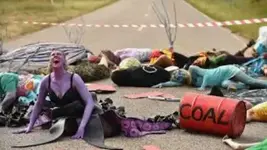- Thread starter
- #17,801
Wow, you’ve gone global as well!Euro accounting. That was a decimal not a comma
Follow along with the video below to see how to install our site as a web app on your home screen.
Note: This feature may not be available in some browsers.
The thread centers on New Zealand's upcoming election, primarily debating the economic management and policy differences between the center-left Labour government and center-right National/ACT opposition. Key criticisms target Labour's fiscal stewardship, citing ballooning government expenditure #7#272, housing unaffordability, and unfulfilled promises like KiwiBuild and dental care expansion #16#12. A user #7 highlighted Labour's annual 9% spending growth versus 1.5% under previous governments, arguing this fueled inflation. National's tax-cut policy faced scrutiny over funding gaps and legality, with user #215 questioning Luxon's reliance on "trust me" assurances.
Leadership competence emerged as a critical theme, particularly in later posts. Luxon drew heavy criticism after a contentious interview where he struggled to defend policy details #194#199#211, while Willis faced backlash for her economic credentials. Hipkins garnered fleeting praise for articulation but was ultimately seen as representing poor governmental outcomes #45#119. A trusted user #308 presented expert economic analysis contradicting Treasury optimism. Infrastructure issues—like Wellington's water crisis and the dental school staffing shortage—were cited as examples of systemic mismanagement #235#12. Notable policy debates included road-user charges for EVs #220, immigration impacts on rents #299, and coalition scenarios involving NZ First #182#258. Early fringe discussions on candidates' rugby allegiances gave way to substantive policy critiques, culminating in grim Treasury forecasts discussed in posts #271#304#308. User #168 also revealed concerns about Labour rushing regulatory changes to entrench policies pre-election.
Economic Policies, Housing Crisis, Leadership Competence
Wow, you’ve gone global as well!Euro accounting. That was a decimal not a comma
Frank’s not that beautifulOmg. Just realized who frank is. Gina rinehart! https://www.theguardian.com/busines...liberal-party-trump-australia-election-ntwnfb
I’ve been out to a few of those assets, the scale is difficult to comprehend until you’ve seen them in the flesh. Mount Whaleback as an example is quite incredible.Would be nice to pull some money out of the ground
I remember growing up, it was nice to dream about a money tree
Australia basically has that, but they pull it out of the soil
You think they'd leave and risk NZ being run by this lot?This is exciting for those right leaning posters - you'll be queueing up I'm sure! https://www.stuff.co.nz/world-news/...e-visa-lures-those-fearing-moral-decline-west

I can hear the bags being packed as we speak!
Apologists make excuses. This government have created a huge extended recession. Great work.Drug users get withdrawals coming off drugs.
Economies get withdrawals coming off a debt fuelled govt spend up.
Living within our means sucks! Delaying the inevitable still means the inevitable still happens…
Nope, our Reserve Bank created a glut & then a famine for consumer spending.Apologists make excuses. This government have created a huge extended recession. Great work.
Manufactured recession, then this government extended it unnecessarily by cutting dead a number of vital functional areas and withdrawing all funding, particularly new builds. They've really stuffed up.Nope, our Reserve Bank created a glut & then a famine for consumer spending.
The current government are forcing state owned operators to stand on their own two feet & either generate acceptable return on capital or restructure - which allows a redistribution of tax revenue to where it is needed more.Manufactured recession, then this government extended it unnecessarily by cutting dead a number of vital functional areas and withdrawing all funding, particularly new builds. They've really stuffed up.
Just to be clear, do you favour:Manufactured recession, then this government extended it unnecessarily by cutting dead a number of vital functional areas and withdrawing all funding, particularly new builds. They've really stuffed up.

 theconversation.com
theconversation.com
